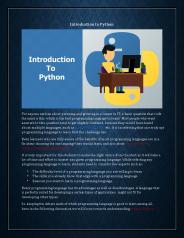Introduction to Functional Programming in R - PowerPoint PPT Presentation
1 / 18
Title:
Introduction to Functional Programming in R
Description:
Client's logo. if needed. Introduction to Functional Programming in R. Andrei Serjantov ... Error in FUN(X[[1L]], ...) : element 2 is empty; ... – PowerPoint PPT presentation
Number of Views:43
Avg rating:3.0/5.0
Title: Introduction to Functional Programming in R
1
Introduction to Functional Programming in R
- Andrei Serjantov
2
Contents
- Introduction to Functional Programming
- Static Typing
- Functions as first class objects
- Higher Order Programming
- Map
- Fold
- Partial Function Application
- R and Haskell
3
Functional Languages
- Static Typing
- Functions as first class citizens
- Passing functions as arguments
- Returning functions as results (partially
applying functions) - (often involves lots of recursion)
- Examples
- ML (OCAML)
- Haskell
- Scheme
4
Static Typing (vs Dynamic Typing)
- gt 1"c"
- Error in 1 "c" non-numeric argument to binary
operator - gt if(FALSE) 1"c" else print("c")
- 1 "c
- b if False then (1"c") else 1
- perm.hs8219
- No instance for (Num Char)
- arising from the literal 1' at
perm.hs8219 - Possible fix add an instance declaration for
(Num Char) - In the first argument of ()', namely 1'
- In the expression (1 "c")
- In the expression if False then (1 "c")
else 1
5
Functions as First Class Objects
- add (Int,Int) ? Int
- add (x,y) x y
- perform_operation ((Int,Int) ? Int) ? Int
- perform_ operation f f(3,4)
- perform_operation_with_3 ((Int,Int) ? Int) ?
Int ? Int - perform_ operation f x f(3,x)
- add_with_3 perform_operation_with_3 add
- add_with_3 5
- gt 8
6
Example
Theory
lt?
7
Example
Theory
lt?
1,2,3 is a list containing 1,2,3
8
Company Name
Code
array of Option Prices
ltEmp modelgt
ltBS modelgt
Total MSE
Total MSE
lt?
9
Map and fold
- map ((a ? b),a) ? b
lookup String ? String
fold (((a,b) ?a),a,b) ? a
get_data String ? Double Array
model Double Array ? Object
fold (((Int,ltlm objgt) ? Int),Int,ltlm objgt)
? Int
10
Folds I
- What does fold do?
- Think of a conveyor
- conveyor parts ? partly_built_car
- worker (part,partly_built_car) ?
partly_built_car - fold (((?, ?) ? ?), ?,?) ? ?
- fold ((part,partly_built_car) ?
partly_built_car, partly_built_car, parts) ?
partly_built_car - fold (funct, almost_car, ) almost_car
- fold (worker, almost_car, partother_parts)
fold(worker, worker(part,almost_car),
other_parts) - Whats the difference between this and
- fold (worker, almost_car, partother_parts)
worker(part,fold(worker, almost_car, other_parts))
11
Folds II
Summary in the previous slide can be implemented
as follows obj_list ltlist of lm objectsgt
x Object mse_list map(extract_MSE, X)
extract_MSE Object ? Double summary_stat
sum(mse_list) So, how do we write sum
functional-style ??? sum Double ? Double sum
0 sum (xxs) x sum(xs) OR notice that
(Double, Double) ? Double So sum xs
fold(,0.0,xs)
12
Functional R
- map lapply
- fold reduce
- Also
- Mapply
- Vectorize
13
In R
- gt A list(3,4)
- gt add_3 function(x,y3) xy
- gt add function(x,y) xy
- gt lapply(A,add_3)
- 1
- 1 6
- 2
- 1 7
- gt lapply(A,add)
- Error in FUN(X1L, ...) element 2 is empty
- the part of the args list of '' being
evaluated was - (x, y)
14
In Haskell
- -- Compile time error which simply does not occur
in dynamically typed languages - new_list map (add_one) "a", "b", "c"
- perm.hs5926
- Couldn't match expected type Int' against
inferred type Char' - In the expression "a"
- In the second argument of map', namely
"a", "b", "c"' - In the expression map (add_one) "a", "b",
"c" - never_error if (True) then else (map
(add_one) "a", "b", "c") - perm.hs5554
- Couldn't match expected type Int' against
inferred type Char' - In the expression "a"
- In the second argument of map', namely
"a", "b", "c"' - In the expression (map (add_one) "a", "b",
"c")
15
Partial Function Application in R
- optim(par, fn, gr NULL, ... , method
c("Nelder-Mead", "BFGS", "CG", "L-BFGS-B",
"SANN")) - Arguments
- ... Further arguments to be passed to fn and gr.
- f function(x) log(x)1
- obj_fun function(x,f) (x-f(x))2
- solution optim(1000, obj_fun, NULL, f,
method"BFGS")
16
Partial Function Application in Haskell
- f Double ? Double
- f x log(x) 1
- obj_fun (Double ? Double) ? Double ? Double
- obj_fun f x (x-(f x))2
- a optim(1000, (obj_fun f), method "BFGS")
17
Some more partial function application
- Consider the function mapply (in fact, its more
general than that) - mapply ((?, ?) ??,?,?) ??)
- list_of_stuff list("a","b","c")
a,b,c - some_labels as.list(seq(10,14,by2))
10,12,14 - mapply(pair_up, list_of_stuff,some_labels,
SIMPLIFYFALSE) a,10,b,12,c,14
- There is also a function called Vectorize
- Vectorize ((?, ?) ??) ?((?,?) ??)
- new_function Vectorize(pair_up, SIMPLIFYFALSE)
- new_function(list_of_stuff, some_labels)
- in Haskell this happens automatically, mapply
((?, ?) ??) ?? ?? ??
18
- ins_every_position a -gt a -gt a
- ins_every_position elt lst insert elt lst
- insert a -gt a -gt a -gt a
- insert elt front front elt
- insert elt front (xxs) (front
(eltxxs))(insert elt xs (frontx))































